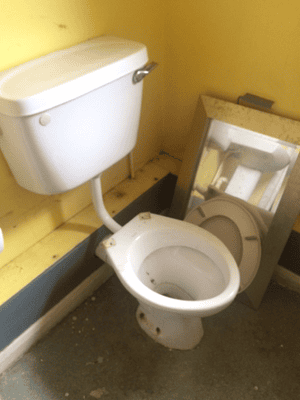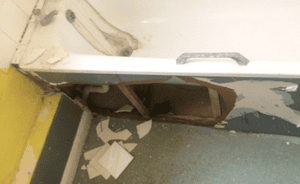There’s a scene in BBC2’s A World Without Down’s Syndrome?, which airs tonight, in which Sally Phillips, Bridget Jones’ Diary actor and mother of a son with Down’s, shows a video of a disabled girl competing at a gymnastics competition to a woman who chose to end her own pregnancy. The interaction isn’t designed to guilt the woman who made a different decision – Phillips is an empathetic presenter and describes herself as pro-choice – but it is a snapshot of how the conversation around disability and abortion is routinely set up: one woman’s choice versus another’s.
We see this in articles praising women who choose to have their child despite the fact a foetal abnormality has been detected, often asking other female readers: what would you do? Or the tone of news items in which women express doubts or fears about raising a disabled child. Katie Price was described as having “confessed”when she said she probably would have had an abortion if she’d known her son Harvey was going to be severely disabled, as if the thought, let alone the act, was a heinous crime.
On the other hand, I’ve seen women with disabled children – and disabled people themselves – be asked incredulously (often by complete strangers) why an abortion wasn’t chosen. Such attitudes are particularly alarming in a climate where disabled people are increasingly perceived as a costly burden to the state.
When it comes to disability and pregnancy, we are routinely stuck in this sort of black-and-white dichotomy: having a disabled child is said to be a tragedy or inconvenience that should always be avoided, while women who do choose to abort a foetus with abnormalities are vilified as “shallow” and “selfish”. Neither is accurate nor addresses the issues that really matter.
The truth is there is still considerable prejudice around disability. We live in a culture where disabled people’s lives are often said to be worth less, and difference is equated with failure or negativity. Even Paralympians are described in some media reports as “suffering” from their disability. It’s not alarmist to accept that the way as a society we understand disability can directly impact on how individuals feel about bringing up a disabled child.
Medical professionals – the very people pregnant women rely on – are not exempt from spreading such attitudes. Phillips has spoken of the way that, after her son was born with Down’s, her doctor broke the “bad news” and the nurse cried. (Her child’s disability wasn’t detected during pregnancy.)As the NHS looks set to introduce a more effective screening for Down’s syndrome, it’s a valid moment to question how we view disability as a society, and to accept that women, and of course men, deserve accurate information in order to make an informed decision.
But in doing so, we should be vigilant of how quickly this conversation can be derailed. It is an ongoing strategy of anti-choice groups to hijack disability, generally as a way to reduce women’s reproductive rights. This sort of faux concern tends to be less about disabled people’s equality and more about women’s inequality. (And though we’re often cut out from the discussion, disabled women can be the ones who are pregnant.) Days before Phillips’ documentary was even set to air, the Mail used it as an opportunity to run an article claiming women “are being pressured to abort babies” with Down’s.
And yet anti-choice campaigners and media organisations who purport to wish to “protect” disabled foetuses tend to be very quiet – or in the Mail’s case, very vocal – about the support disabled people should receive once they are out of the womb. Raising a child with a severe disability can be exhausting and difficult, as well as wonderful, and this is much harder when the state cuts play centres for disabled children, respite care and transport. Phillips herself admits she was lucky to be able to afford to hire a live-in nanny to help with her disabled child, an advantage women on low incomes struggling alone can only imagine.
And we need to talk about that too, if we are going to really have this discussion. We need to admit that things such as economic and gender inequality, as well as perceptions of disability, impact on our supposedly free choices. And we need to argue for positive change, such as more government support for disabled children (and adults), and more inclusion of disabled people in all parts of society.
As we all know, life, let alone disability or raising children, is not black and white but rather filled with multiple shades of grey. I hope Phillips’ documentary starts a long overdue and nuanced conversation. Both women and disabled people deserve better than simplistic judgments.
- Comments on this article will be pre-moderated
Whether to have a Down’s syndrome baby – it’s not black and white | Frances Ryan

